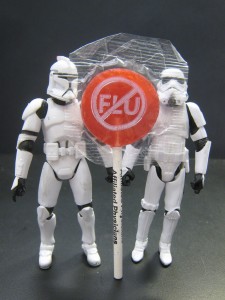
Photo by ShellyS
Summer Howard, Staff Reporter
The holidays are usually a welcomed vacation for everyone. But when the break is over and college students go back to school, homework and social life are only two of their problems. Living, eating and learning with the same group of people in the winter months can and does translate to the dreaded virus known as influenza, or the flu.
According to ETR Associates, 20% of Americans contract the influenza virus every year. January is the peak time for the flu to strike. Although the flu normally attacks young children and the elderly, tight living quarters and interaction with many people during cold weather can cause others to contract it. This is why most colleges and universities see a spike in cases around January. At Southern Nazarene University, it is no different.
“We have confirmed eight cases on campus,” Nurse Angie Hattler said, “as well as seen many more students with flu-like symptoms.”
Recognizing symptoms is key to getting treatment early and avoiding the spread of the illness. Studies show that a person can be contagious for up to eight days, which includes the time before and after the appearance of symptoms. Flu symptoms include fever or feeling feverish/chills, cough, sore throat, runny or stuffy nose, muscle or body aches, headaches and fatigue. If you have the majority of these symptoms, doctors advise you to pay them a visit. The nurses on campus, however, want you to stay well. In fact, Nurse Hattler ordered double the amount of vaccinations this year to help prevent the flu epidemic from hitting the school this year.
“We have about 25 vaccinations left,” she said. “So if you haven’t already received your vaccination, come and get one. It takes about two weeks for the vaccination to take effect; that is why we encourage you to get vaccinated early. But it’s not too late to protect yourself against the flu.”
Vaccinations cost $15 and are given in the Student Health Center, which is open Monday through Friday, beginning at 8:30 in the morning. But getting your flu shot is not the only thing that the nurses suggest you do to avoid catching this devastating virus.
“The flu is spread through contact with other people and the air,” Nurse Hattler said. “A person’s sneeze can potentially leave droplets of the flu virus at your desk in the classroom or the table you sit down to eat at. One of the best things you can do to prevent the flu, then, is wash your hands, especially before meals. If you do that, along with eating right and getting enough sleep, you will most likely stay healthy.”